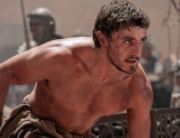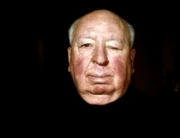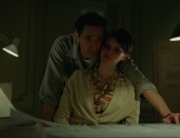
Joan Chen and her minions (Photo: Well Go USA/Variance Films)
Directed by Zhang Li & Jackie Chan
Produced by Wang Zhebin & Chan
Written by Wang Xingdong & Chen Baoguang
Released by Well Go USA/Variance Films
Mandarin with English subtitles
China/Hong Kong. 125 min. Rated R
With Jackie Chan, Joan Chen, Lee Bing Bing, Winston Chao & Jaycee Chan
A historical Chinese epic about the overthrow of the Qing Dynasty and the establishment of the country’s first republic, 1911 is the kind of government-backed film that gives propaganda art a bad name. Developed in part with some outfit called the “1911 Cultural Activities Committee” in honor of the 100th anniversary of the events it celebrates, 1911 shows how a plucky group of revolutionaries put the kybosh on feudalism and paved the way for the red uprising.
Martial arts superstar and sometime Communist Party apologist Jackie Chan, who shares directing duty with Zhang Li, stars as Huang Xing, a grizzled military commander of the revolutionaries. His best friend is Sun Yat-Sen (Winston Chao), eventually the republic’s first president, a spectacled and scholarly man given to long-winded exhortations on the beauty of revolution. The two impossibly noble heroes are paragons of their respective virtues—Huang, although ostensibly the revolt’s commander, leads every charge, and has to be physically restrained from suicidal attacks on the enemy. Sun is just as eager to die for the cause, but he’s compelled to travel the globe hat in hand raising money and support for the fledgling republic instead. Both men work to topple the Empress Dowager Longyu (Joan Chen, why?), here played as a frail-tempered bitch who’s governing in place of the actual emperor, a young boy. Real power, of course, lies in the hands of her corrupt ministers.
An early scene showing a failed attempt to dislodge the monarchy is actually pretty exciting—the sound effects, let it be said, are great, and the bullets zing and whiz past the doomed rebels as they lay siege to a crooked governor’s mansion. It’s tense, and the action is well-choreographed. But it’s the only scene you will really enjoy.
Overall, the extravaganza takes on too much. It’s almost like one of the Harry Potter adaptations. If you don’t know the source material, you’re liable to be completely lost. Scores of characters appear, often with titles introducing them, only to vanish seconds later, never to be seen again. Vast chunks of plot are only revealed in titles between scenes. In fact, it seems some of the most important plot points are just brief blurbs written on the screen, as we hurry from one rushed set piece or harangue about the value of the revolution to another.
Did I say revolution? I hope you like hearing about it, as the script, credited to Wang Xingdong and Chen Baoguang but probably found in some Cultural Revolution-era time capsule, is a lengthy, soporific rodomontade to the deathless spirit of Revolution. In one scene, a pretty, young Chinese woman, all big eyes and ready smile, even asks Sun, “What is revolution?” Have no fear, sweetheart—Sun spends half the film blurting out the answer.
The filmmakers have made much in the press about the top-of-the-line, Hollywood-style production values of the film. It’s true there are huge outdoor fights, with casts of hundreds, and dozens of grand locations. But a triple-A production this is not. You see, a good fifth of the movie is in English, as Sun must travel the world, trying to win over foreign bankers while plotting with an American friend. Now, let’s say this as nicely as possible: the English spoken sometimes borders on gibberish. The English dialogue is actually subtitled, but what appears on screen is often different from what’s said on screen. However, if it’s any consolation, the awkward English bits—along with a final note saying the Communist Party would go on to “rejuvenate the nation”—drew the only laughs at the screening I attended. Chinese schoolchildren, the obvious intended audience for this sappy, irony-free exercise in jingoism, my heart goes out to you.






Leave A Comment